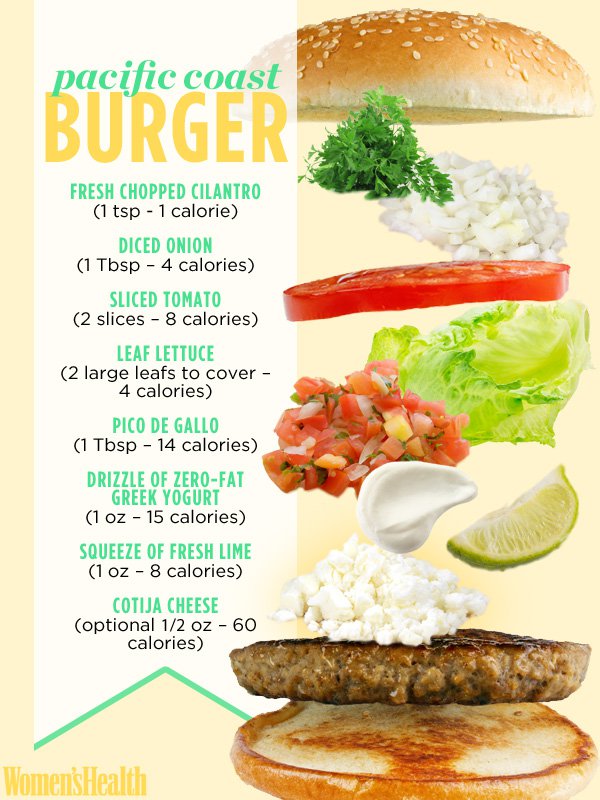Lose Weight With Money Prizes

Money may not be able to buy you love, but it turns out it can help with weight loss.Research has shown that, when it comes to dropping excess pounds, there’s nothing like cold, hard cash to keep you motivated. In fact, dieters who have a financial incentive to lose weight are nearly five times more likely to make it happen than those with no incentive.Though experts are just beginning to understand the impact of financial incentives on promoting healthy behavior, there’s no doubt that it has a powerful effect. “This is a logical innovation with solid grounding in psychology and economics that has the potential to help people achieve their goals of losing excess fat and improving their fitness,” says John Cawley, Ph.D., co-director of Cornell University’s Institute on Health Economics, Health Behaviors and Disparities.QUIZ: Track Your Daily DietInspired by the statistics, there have been a new wave of websites that offer monetary rewards for weight loss. The latest to jump on the lose-to-win bandwagon is DietBet—the online social dieting game, which launches mid-December, that lets players win money through weight-loss competitions. People place wagers on reaching a healthy goal weight and everyone who achieves the goal wins a share of the pot. It’s like fantasy football for dieters.Founder Jamie Rosen came up with the concept after witnessing the painstaking process friends went through to plan their own diet bets and deciding to streamline the process with an online source. “We wanted to make that all a million times easier for the game’s organizer and also more fun,” says Rosen.Dietbet also offers innovative features, such as the Daily Carrot—a motivational and amusing daily tip written by comedy writers from Harvard Lampoon—and a message board, where users can trash talk, share photos and keep up with each other’s scores. “The reason we started DietBet was the observation that nobody in the world likes to lose weight but everyone loves playing games,” explains Rosen. “So we put a lot of attention to making it a fun, social game experience.”MORE: The Dieting Plateau MythBut it’s not just a matter of doling out cash for dropped pounds: Sites and programs must also consider the way in which they implement incentives in order to achieve the maximum effect. “Behavior change is very difficult and financial incentives show tremendous potential; however, the programs have to be very carefully constructed to get the desired results,” says David Roddenbury, founder of one of the first financially incentivized diet websites, HealthyWage.Though research is still being conducted in this area, the field of behavioral economics sheds some powerful insight. At Harvard Business School, research conducted by Leslie John, Ph.D., has shown that it’s possible to exploit people’s decision biases, such as overconfidence in their ability to shed pounds and an aversion to losing money, to help them adopt healthier behaviors. “The general approach we’ve been taking in the studies is to use people’s decision errors in their favor,” says John. In other words, they’re helping people help themselves. “People tend to put more value on avoiding loss than gaining something,” notes John. “So instead of just awarding people with money for weight loss, we had them put their own money down.”QUIZ: Test Your BMI and WHRJohn said that this method took advantage of those two big decision errors: aversion to losing cash and overconfidence. “People hate losing money, so this propels them to drop the pounds,” says John. “And people are overly optimistic about their ability to lose weight, which increases the likelihood that they will put money down in the first place.”In a four-month-study, John found that the control group, which they paid in a way that leveraged decision errors, lost 14 pounds, while the group in which those decision errors weren’t used to an advantage only shed four pounds. Over at HeathlyWage, Roddenberry reported that those who invest their own money are more than five times as likely to win the weight-loss challenges than those who don’t invest. “Monetary awards are motivating, but what’s also important is the way in which the incentives are implemented,” says John. “To pay someone in a way that leverages their decision errors, at least over a short period, is incredibly powerful in inducing behavior change.”Another crucial factor in the process is immediate gratification—dieters need their rewards and they need it now. This is why many company programs that offer health care premium adjustments at the end of the year for weight loss are not maximally effective. “The effectiveness of rewards decreases with the delay in paying them,” explains Cawley. “One can imagine an ATM built into a BIA [which calculates body composition] or DXA [bone density scanning] device that spits out money when the participant is confirmed to have achieved their fat loss or muscle gain goals. Immediacy of payment matters.”Rosen found this to be true while testing DietBet with beta users. “Other diet bets are typically 90 day challenges (or longer),” he says. “We found from firsthand diet betting experience that short, manageable games are much more motivational.”But while financial incentives work well in triggering weight loss, they are not so successful in the long haul. This comes as no surprise, considering that the hardest part of any weight loss program is not just losing the weight, but keeping it off. “We found incentive schemes to be very effective in inducing short-term weight loss for four to six months,” notes John. “But once we removed the incentives, there was substantial weight regain.”COLUMN: Simple, Free Weight Loss PlanJohn is currently testing the ways in which incentives can be used to help people maintain their weight loss. “We’re working with possible longer-term financial incentives—perhaps provided by insurance companies—that might be necessary to get people to keep weight off,” she says. She’s also testing what happens when you incentivize the behaviors that lead to weight loss, such as portion control or healthier food choices, instead of simply the end result. “If you incentivize the process rather than just the outcome, you are teaching people how to be healthier,” says John. “This may instill healthier habits that are easier to sustain once you remove the incentives.”HealthyWage is currently piloting various long-term programs where the participants make an investment upfront and get paid on a regular basis for keeping the weight off. “We’re very optimistic that an incentive-based program can continue to be used to keep you accountable to yourself and keep you from gaining weight back,” says Roddenbury. And Rosen, too, has been researching how short-term behavior modification can transition into long-term sustainable, healthy habits. “We’re hoping to work with academics to use our data, anonymously, to develop a better understanding of how to promote sustainable weight loss,” says Rosen.RESEARCH: Obesity Spreads in Social NetworksThough there’s still much to be explored in the world of financially-rewarded weight loss, there’s no denying the tremendous potential it has to impact the healthcare industry—including potentially lowering healthcare costs. “An obese person costs an incremental $1,500 per year in health care costs,” explains Roddenbury. “If the health care payor can take some of the $1,500 and give it to the consumer as a financial incentive such that she loses weight and is no longer obese, it’s win-win.”It seems that in this losing game, everyone wins.
-
What to Do During Pregnancy to Make Losing the Baby Weight Easier
When youre pregnant, it may seem like the most logical course of actio
-
Have a whole grain breakfast
-
How This Former Fat Kid Became a Kickass Trainer and Lost 70 Pounds
Before: 189 After: 120 T
-
10 Effective Morning Exercises for Weight Loss
Do you know it is best to work out in the morning? The best thing you
-
4 Painless ways to get your couch potatoes moving!
-
Lose weight without obsessing over the scale
- DON'T MISS
- Jaggery: How Does It Help You To Lose Weight?
- What types of protein do vegetarians eat?
- 6 Things you MUST do daily to LOSE WEIGHT and keep it off
- Is Adrenal Fatigue Causing You to Gain Weight?
- Sleep reduces snacking
- Make the most of lunch time and lose weight
- 9 Ways to boost metabolism all day long
- 10 WEIGHT LOSS TIPS FOR LAZY GIRLS
- Tight, Toned Tummy Tips: Slow is the way to go
- Top 5 reasons to stop weighing yourself




